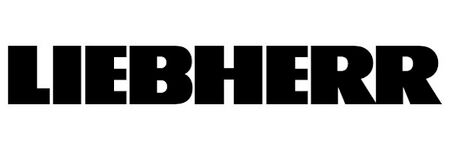Liebherr: Difference between revisions
No edit summary |
|||
| Line 3: | Line 3: | ||
|sector=Buildings | |sector=Buildings | ||
|industry=Technology Hardware & Equipment | |industry=Technology Hardware & Equipment | ||
|type=Public | |type=Public | ||
|foundation=1949 | |foundation=1949 | ||
|founder=Hans Liebherr | |founder=Hans Liebherr | ||
Latest revision as of 00:34, May 8, 2022
- Members
Liebherr consists of over 130 companies organized into 11 divisions: earthmoving, mining, mobile cranes, tower cranes, concrete technology, maritime cranes, aerospace and transportation systems, machine tools and automation systems, domestic appliances, and components. It has a worldwide workforce over 42,000, with nine billion euros in revenue for 2017. By 2007, it was the world's largest crane company.

|
Liebherr presents all-electric truck mixers | |
| Liebherr, in cooperation with Designwerk and ZF, have developed the first fully electric truck mixers with a drum holding ten or twelve cubic metres on a five-axle chassis. The first applications are planned for autumn 2020 at the customers Holcim and KIBAG in Switzerland. | ||

|
LB 16 unplugged: The first battery-powered drilling rig | |
| The LB 16 unplugged is the first battery-powered drilling rig in the world. With the electro-hydraulic version, Liebherr presents the deep foundation machine with alternative drive concept. In doing so, Liebherr aims at providing the best possible combination of customer benefits, eco-friendliness and efficiency, as well as achieving new fields of application with Local Zero Emission. | ||
Details
Liebherr is a German-Swiss multinational equipment manufacturer based in Bulle, Switzerland, with its main production facilities and origins in Germany.
Established in 1949 by Hans Liebherr in Kirchdorf an der Iller, Baden-Württemberg, Germany, the business is still entirely owned by the Liebherr family. Isolde and Willi Liebherr, Hans' daughter and son, respectively, are the chief executive and chairman of the Bulle, Switzerland–based Liebherr-International AG, and several other family members are actively involved in corporate management. In 2005, Forbes magazine listed them as billionaires. In 1974, the Franklin Institute awarded Hans Liebherr the Frank P. Brown Medal.
Products
The line of products manufactured by the company includes:
- Earth-moving equipment
- Mining equipment
- Cranes: mobile, crawler, tower, maritime, mobile construction
- Diesel engines
- Deep foundation machines
- Concrete-handling equipment
- Material-handling equipment
- Electric motors
- Port (container-handling) equipment
- Machine tools
- Automation systems
- Domestic refrigerators and freezers
- Aircraft equipment
- Hotels
- Mechanical, hydraulic, electrical, and electronic components and subcomponents
Liebherr has the world's most powerful and tallest crawler crane in its LR 13000. It is capable of lifting 3,000 tonnes (2,953 long tons; 3,307 short tons) and has a maximum pulley height of 248 metres (814 ft). This is achieved with the attachment of an additional 126-metre-long (413 ft) lattice jib to the 248-metre (814 ft) main boom. The height of the crawler chassis is an additional 2 m (6 ft 7 in), which gives the lattice structure a total height of 248 m (814 ft). The maximum hoisting height is 245 m (804 ft) and the total ballast used is 1,900 tonnes (1,870 long tons; 2,094 short tons), including 1,500 tonnes (1,476 long tons; 1,653 short tons) of derrick ballast.
